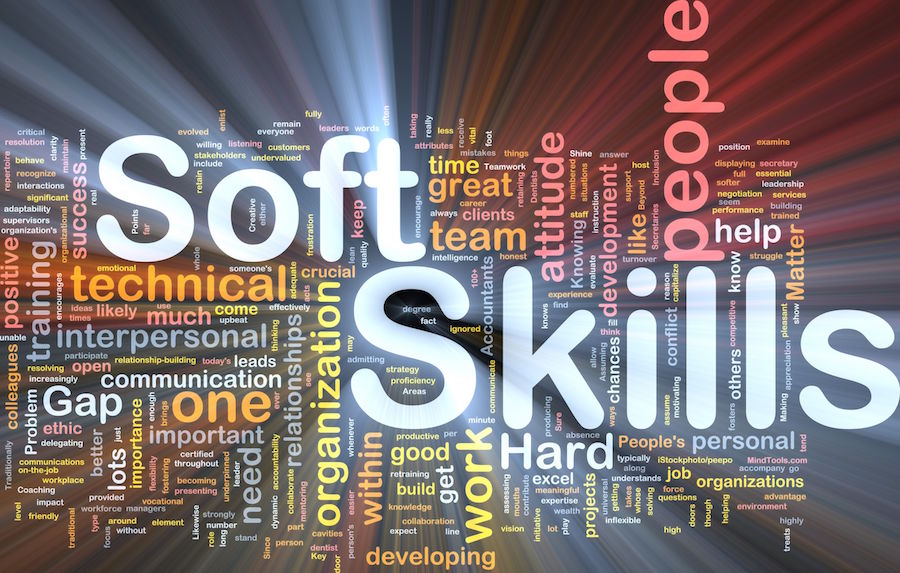
Soft skills can’t be measured unless there is a clear understanding of what they are. It’s the same with technical skills.
The difference is that unlike with technical skills, most people don’t have a clear understanding of soft skills and therefore they have not been measured. As a result soft skills have suffered an image problem, an image of being woolly and nice to have skills – the ‘fluffy people stuff’. But that is all changing as organisations increasingly realise that it is a candidate’s personal qualities that make the difference between a successful and unsuccessful hire, successful and unsuccessful teams. Now they are starting to be measured.
Soft skills defined
So, what are soft skills? They describe the personal qualities required to perform well at work and get on with other people in the workplace. The term encompasses all those skills involving interaction with others –interpersonal skills, communication skills, personality traits, emotional intelligence, empathy, attitude, motivation, flexibility… It’s a long list.
They are a lot less tangible than other skills – literacy, numeracy, qualifications, technical knowhow and role-specific skills, for example – but they are the skills that can make all the difference between getting on in the workplace and not.
Just look at what the Collins English Dictionary describes soft skills as being: ‘desirable qualities for certain forms of employment that do not depend on acquired knowledge: they include common sense, the ability to deal with people, and a positive flexible attitude’.
Focus on personal qualities
Essentially, soft skills are about how people approach their job and how they operate with others. They are the personal qualities that help people negotiate the workplace in so many different and very important ways – collaborating with colleagues, getting the right message across in meetings, clinching a deal, speaking to customers, delegating tasks, giving presentations and so on.
People who have good soft skills make good influencers, good team-workers and good leaders. They make good colleagues, business partners and managers.
Key soft skills
Soft skills are not just about how people talk to one other, though. They are also about how people listen to one another. People with good soft skills tend to ask good questions and listen proactively to what people are saying. They are good at decoding what is not being said as well and picking up on body language.
Empathy is a key skill – understanding where a colleague is coming from, being able to appreciate another person’s point of view and maintaining positive working relationships.
Some of it comes down to good manners – listening well, considering others, being friendly and polite, talking properly to people and so on.
Let’s give an example of where good soft skills really help a person do their job well. Think of doctors. You’d expect them to have the requisite medical skills, but communication and listening skills are critically important. People want and need doctors to have good communication, listening and empathy skills – a good bedside manner.
To a certain degree, soft skills are innate, but they can also be honed, taught and improved. They can also be measured.
Soft skill competencies for business
At Softfactors we have devised a series of soft skills competencies that enable us to do just that. We do this by framing soft skills in terms of business competencies. We think there are some really important, fundamental competencies, 25 in fact, which we have broken down into five categories.
Dealing with people
This covers leading others, networking, inter-personal communication, personal accountability and more.
Interpersonal skills
These skills focus on a person’s ability to interact with others and collaborate, manage conflict and work with diverse sets of people.
Dealing with business
From effectively liaising with clients to delivering on projects, this set of competencies shows an individual’s ability to do business.
Thinking skills
These skills include decision making and judgement as well as being able to research facts and think strategically.
Personal qualities
These include, drive, resilience, personal impact and self-awareness.
Measuring these competencies provides employers with in-depth insight into someone’s personal qualities. The data can then be used to check against a candidate’s progress and fit. Employers can start to assess for soft skills and understand their impact on the business.
